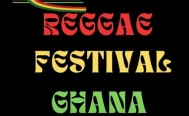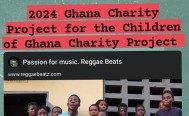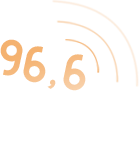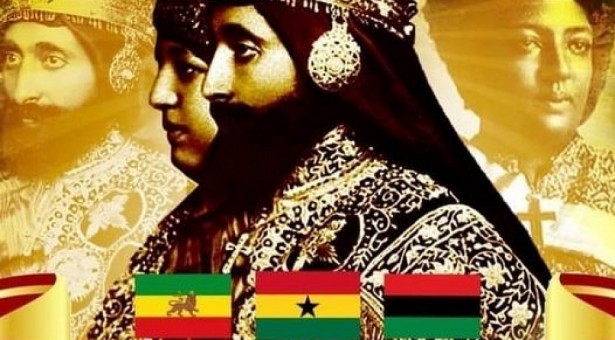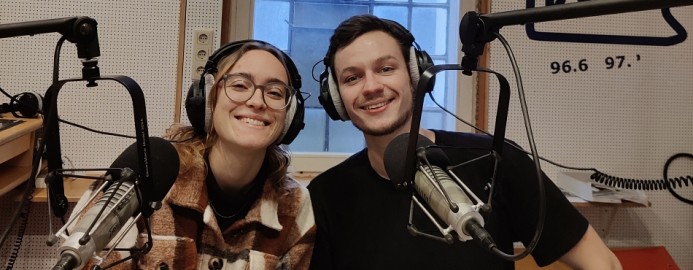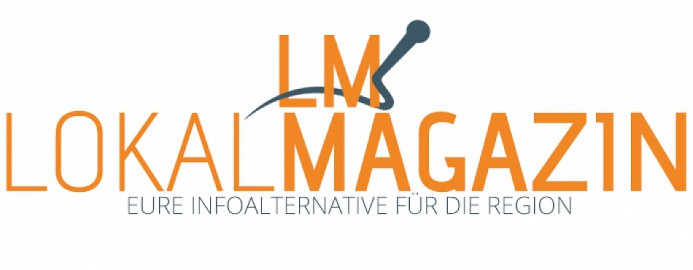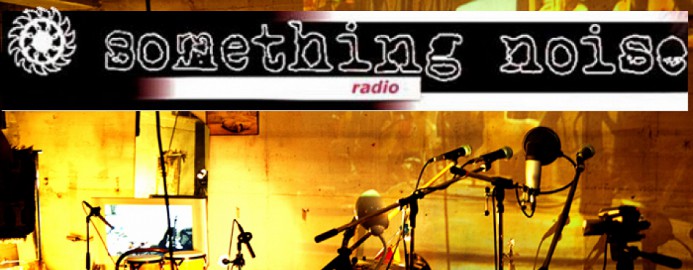KANDAKE KWEENSIZE Weblog/Artikel
Reggae and Dub :: ein paar Infos über die Rasta Reggae Radioshow (spanisch/englisch/deutsch)
Do, 11.04.2024
13:56
Frauen, Info, Jugend, Kultur, Kunst, Musik, Politik, Regionales, Soziales
Ein paar Infos (3-sprachig) über die zwei Hauptgenres der Sendung Kandake Kweensize.
El reggae viene de Jamaica:
(spanish)El reggae (/?r??e?/) es un género musical que se originó en Jamaica a finales de los años 1960. El término también denota la música popular moderna de Jamaica y su diáspora. Un sencillo de 1968 de Toots and the Maytals, "Do the Reggay" fue la primera canción popular en utilizar la palabra "reggae", nombrando efectivamente el género y presentándolo a una audiencia global. Si bien a veces se usa en un sentido amplio para referirse a la mayoría de los tipos de música bailable popular jamaicana, el término reggae denota más propiamente un estilo musical particular que estuvo fuertemente influenciado por el mento tradicional, así como por el jazz y el R&B americanos, especialmente el R&B de Nueva Orleans. practicado por Fats Domino y Allen Toussaint, y evolucionó a partir de los géneros anteriores ska y rocksteady. El reggae suele relacionarse con noticias, chismes sociales y comentarios políticos. El reggae se extendió al campo del jazz comercializado, siendo conocido primero como "Rudie Blues", luego "Ska", más tarde "Blue Beat" y "Rock Steady". Es reconocible instantáneamente por el contrapunto entre el bajo y la batería, y la sección rítmica poco convencional. Los orígenes inmediatos del reggae estuvieron en el ska y el rocksteady; de este último, el reggae tomó el relevo del uso del bajo como instrumento de percusión.
Dub: Es increíble lo que se componía en los estudios de la isla de Jamaica en los años 70. Aparte del hecho de que es un lenguaje musical en sí mismo, no importa que haya influido en la ingeniería de los estudios musicales en todo el mundo y en tantos estilos musicales. Simplemente no se puede ignorar que esto proviene de las raíces y la narrativa cultural sobre la injusticia. Y sin duda nació de la fe rastafari, basada sin duda en el tambor y la percusión africana. Producido en Jamaica para una juventud británica desilusionada, en su mayoría británicos de primera generación con conexiones con la música jamaicana, caribeña y reggae, y que viven bajo opresión racista en la única patria donde crecer. La pobreza, la desigualdad y un conjunto único de circunstancias culturales te colocan en Un lugar difícil en lo que respecta a la comida, la herencia musical, la socialización, la educación, la autoridad, el público en general y la presión de los medios no era típicamente británico para ti si fuéramos quienes eras. Primera generación. De vuelta al doblaje y al negocio de la música jamaicana de la época. Dub brindó la oportunidad a tantas versiones de tantos artistas de producir una variedad de versiones publicadas de una canción en particular con una variación del mismo riddim (ritmo). La alegría de la música y/o la canción no estaba encerrada en derechos de autor en ningún lugar como en el mundo desarrollado, donde las mega editoriales de música imponen estrictamente la creatividad. Sin embargo, el reconocimiento por los resultados creativos y las recompensas no se compartieron de manera justa.
En el Reino Unido, el punk y el reggae iban juntos a finales de los 70, ya que ambos eran música de protesta. Salimos todos juntos. Por lo que recuerdo, fue sólo cuando abrió el Caribbean Club que cambió. Los punks no eran bienvenidos.
Reggae comes from Jamaica:
(english)Reggae (/?r??e?/) is a music genre that originated in Jamaica in the late 1960s. The term also denotes the modern popular music of Jamaica and its diaspora. A 1968 single by Toots and the Maytals, "Do the Reggay" was the first popular song to use the word "reggae", effectively naming the genre and introducing it to a global audience. While sometimes used in a broad sense to refer to most types of popular Jamaican dance music, the term reggae more properly denotes a particular music style that was strongly influenced by traditional mento as well as American jazz and rhythm and blues, especially the New Orleans R&B practiced by Fats Domino and Allen Toussaint, and evolved out of the earlier genres ska and rocksteady. Reggae usually relates to news, social gossip, and political comment. Reggae spread into a commercialized jazz field, being known first as ‘Rudie Blues’, then ‘Ska’, later ‘Blue Beat’, and ‘Rock Steady’. It is instantly recognizable from the counterpoint between the bass and drum downbeat, and the offbeat rhythm section. The immediate origins of reggae were in ska and rocksteady; from the latter, reggae took over the use of the bass as a percussion instrument.
Dub: It's incredible what was being composed in the studios on the island of Jamaica in the 70s. Apart from the fact that it's musical language in its own right — never mind that it influenced musical studio engineering around the world and across so many musical styles. You just cannot ignore that comes from the roots and culture narrative about injustice. And it was undoubtedly born of the Rastafari faith, undoubtedly African drum and percussion based. Produced in Jamaica for a disillusioned UK youth, mostly first generation Brits with Jamaican/Carribbean/Reggae music connections, and living under racist oppression in the only homeland to grow up in. Poverty, inequality, and a unique set of cultural circumstances put you in a difficult place regards to food, musical heritage, socialisation, education, authority, the general public and the media pressure was not typically British for you if we're who you were. First generation. Back to the dub, and to the Jamaican music business of the day. Dub provided the opportunity for so many versions by so many artists to produce a variety released versions of a particular song on a variation of the same riddim (rhythm). The joy of the music and/song was not locked up in copyright anywhere like in the developed world where creativity tightly enforced for by mega music publishers. However, recognision for creative results and the rewards did not get shared in justly fashion.
In UK punk and reggae went together in the late 70s, as they were both protest music. We all hung out together. From what I remember it was only when the Caribbean Club opened that it changed. Punks weren't welcome.
Reggae kommt aus Jamaica:
(german)Reggae (/?r??e?/) ist ein Musikgenre, das Ende der 1960er Jahre in Jamaika entstand. Der Begriff bezeichnet auch die moderne Popmusik Jamaikas und seiner Diaspora. „Do the Reggay“, eine Single von Toots and the Maytals aus dem Jahr 1968, war der erste populäre Song, der das Wort „Reggae“ verwendete, wodurch das Genre effektiv benannt und einem weltweiten Publikum vorgestellt wurde. Während der Begriff Reggae manchmal im weitesten Sinne für die meisten Arten der populären jamaikanischen Tanzmusik verwendet wird, bezeichnet er eigentlich einen bestimmten Musikstil, der stark vom traditionellen Mento sowie vom amerikanischen Jazz und Rhythm and Blues, insbesondere dem New Orleans R&B, beeinflusst wurde praktiziert von Fats Domino und Allen Toussaint und entwickelte sich aus den früheren Genres Ska und Rocksteady. Reggae bezieht sich normalerweise auf Nachrichten, sozialen Klatsch und politische Kommentare. Reggae verbreitete sich in einem kommerzialisierten Jazzbereich und wurde zunächst als „Rudie Blues“, dann als „Ska“, später als „Blue Beat“ und „Rock Steady“ bekannt. Es ist sofort am Kontrapunkt zwischen dem Bass- und Schlagzeug-Downbeat und der Offbeat-Rhythmussektion zu erkennen. Die unmittelbaren Ursprünge des Reggae lagen im Ska und Rocksteady; Von letzterem übernahm der Reggae die Verwendung des Basses als Schlaginstrument.
Dub: Es ist unglaublich, was in den 70er Jahren in den Studios auf der Insel Jamaika komponiert wurde. Abgesehen von der Tatsache, dass es sich um eine eigenständige Musiksprache handelt – ganz zu schweigen davon, dass sie die Technik von Musikstudios auf der ganzen Welt und über so viele Musikstile hinweg beeinflusst hat. Man kann einfach nicht ignorieren, dass Ungerechtigkeit aus den Wurzeln und der Kultur resultiert. Und es wurde zweifellos aus dem Rastafari-Glauben geboren und basiert zweifellos auf afrikanischer Trommel und Percussion. Produziert in Jamaika für eine desillusionierte britische Jugend, hauptsächlich Briten der ersten Generation mit jamaikanischen/karibischen/Reggae-Musik-Verbindungen, die unter rassistischer Unterdrückung in der einzigen Heimat leben, in der sie aufgewachsen sind. Armut, Ungleichheit und einzigartige kulturelle Umstände bringen Sie hinein Ein schwieriger Ort in Bezug auf Essen, musikalisches Erbe, Sozialisation, Bildung, Autorität, die breite Öffentlichkeit und den Druck der Medien war für Sie nicht typisch britisch, wenn wir sind, wer Sie waren. Erste Generation. Zurück zum Dub und zum damaligen jamaikanischen Musikgeschäft. Dub bot so vielen Versionen von so vielen Künstlern die Möglichkeit, verschiedene veröffentlichte Versionen eines bestimmten Songs auf einer Variation desselben Riddims (Rhythmus) zu produzieren. Die Freude an der Musik und/oder dem Lied war nirgendwo anders als in der entwickelten Welt urheberrechtlich geschützt, wo die Kreativität von Mega-Musikverlagen streng durchgesetzt wurde. Die Anerkennung für kreative Ergebnisse und die damit verbundenen Belohnungen wurden jedoch nicht gerecht verteilt.
In Großbritannien gingen Punk und Reggae Ende der 70er Jahre Hand in Hand, da es sich bei beiden um Protestmusik handelte. Wir haben alle zusammen rumgehangen. Soweit ich mich erinnere, änderte sich das erst, als der Caribbean Club eröffnete. Punks waren nicht willkommen.
-------------------------------------------------------------------------------------
Über die Rasta Reggae Radioshow Kandake Kweensize und Selectress Dyah gibt es nicht viel zu sagen. Es geht um Rastafari Lifestyle und Themen in der Reggaemusik.
Selectress Dyah says: "I am called your baddest Hostess, your DJane and runner of the riddims and promotional Items mixxing mad fi a maat'a: Asè Ire - To call INI Rasta also means to accept me responsibillity in social items.
Asè pro bono publico worker fi the Rasta Reggae 'Mission Possible': Reggae fi the orphan children in Ghana...etc. INI run the riddims ON RADIO WW96.6fm and promote Artists, DJs, Charity Projects. Rasta means: do wah me say - give the children food, cloth and shelter! That´s what Jah say we must do!"
Das Charity Festival Ghana 2024 ist bis November ein Hauptthema bei Kandake Kweensize Radioshow - Reggae für die Straßenkinder in Westafrika, Ghana. Es geht um das Teilen der Liebe zur Reggaemusik für einen wohltätigen gemeinnützigen Zweck. Die Erlöse und Spenden kommen den hilfebedürftigen Straßenkindern in Ghana zu Gute.
Kandake Kweensize Radioshow fokusiert bei der Musikauswahl für das Programm vor allem neue, noch unbekannte afrikanische, wie globale Reggae und Dancehall ArtistInnen mit dem Zweck diese, durch Promotional Entertainment aus eigener MEMIXX.music Produktion zu unterstützen. Die Unterstützung von Artisten, Labels, Producers, DJs des Genre Reggae und afrozentralisierter Musik trägt seit Beginn der ON AIR Radioshow Kandake Kweensize kontinuierlich zu einem guten, persönlichen Kontakt zwischen den Artisten, Labels, Producern, DJs, Promotern und der Sendungsmoderatorin Selectress Dyah bei.
ONE LOVE is the riddim: #Reggae_rettet_Dich!
Playliste 03-03-24_14_00 Uhr KK Radioshow WW96.6fm
1.I Man Free, Watty Burnett
2.Vinyl Mix Deep Roots Reggae Dub Stepper Massive Selection by Noree,
ONE LIFE ONE LOVE ONE BLESSED VIBRATION in honor and respect to Mellow Sound Radio and DJ Noree Bangkok: played ON AIR Kandake Kweensize Radioshow, 03.03.24 - WW96.6fm -
all rights stay with the artists, producers and the DJMixes belong to the respective Selectors , Promoters: DJ Noree, Bangkok, @MellowSoundRadio
Track ID :
01 The Overnight Players - Shaka Part 1
02 T BONE - Arabian Night (Dub Mix By GAPI)
03 Black Uhuru - Plasic Smile
04 Carlton Livingston - Tale Of Two Clties
05 John Holt - Up Park Camp
06 The Naturals - Marijuana
07 Asuka Ando - Wait Till Dawn
(Jahdub Stido Version)
08 June Lodge - More Than I Can Say
09 Roland Burrell - Stormy Night
10 Cornell Campbell - JAH JAH Me Horn Yah
11 Earth & Stone - False Ruler
12 The ABBYSINIANS - Satta Massagana
13 Big Youth - Dreader Dread
14 Willie Williams - Armagedeon Time
15 Augustus Pablo - JAVA
16 Augustus Pablo - Black Cinderella
About the DJ Noree Mix from 20.10.2023 , played and promoted by Selectress Dyah in her Rasta Reggae RadioCHO Kandake Kweensize at the Free Radio ? WW96.6fm Tübingen, Reutlingen, Rottenburg regional and global via Livestream www.wueste-welle.de
#vinyl #vinylmix #vinylcollection #vinylcommunity #reggae #dub #stepper #heavybass #selectors #positivevibes #playlist #reggaemusic #deepdub #rootsreggae #strictlyvinyl#vinylmix #stepper #rootsreggae
Selector Noree a Musician and Sound Engineer based in Bangkok.
Started his career as a member of Thai legendary band "ZUZU" since 13 years old.Has been touring around the country with the band since then.
With his passion of Reggae music and the Sound system culture, He began collecting the vinyl record and joined Srirajah sound system crew.
Find Mellow Sound Radio :
Instagram : mellowsoundradio
Facebook : Mellow Sound Radio
Find Noree :
Instagram : jay_noree
----------------------------------------------------------------------------------
Playliste 03-03-24_15_00 Uhr KK Radioshow WW96.6fm
all rights stay with the artists, producers and the DJMixes belong to the respective Selectors , Promoters: DJANE Selectress Dyah MEMIXX.music Promotion Reggae, Dub, Ska, Dancehall, Afrobeats @WüsteWelleRadio
Promotional Reggae for the Children of Mosthigh, Orphan Children Ghana
in collaboration with www.reggaebeatz.com and BMT GHANA CEO Willy Wanta, and in honor and respect to LevinGH@ZionTrainLatenightRadioshow @AmanieTV Ghana
TRACK ID:
1.Promotion Charity Reggae Festival 2024 Ghana for the Children of the Mosthigh
2.Dandy Livingston - Water Boy (Downtown 1969)
3.Promotion Charity Reggae Festival 2024 Interview Marga Terneusen ReggaeBeatz
4.Duppy Conqueror (Fort Knox Five Dubstrumental)
5.Treat You Right, BMW Live and in the Studio
6.Kinky Reggae, BMW Live and in the Studio
7.Promotion Info about Charity Reggae Festival 2024 Ghana
8.Warning, Willi Wanta
9.Rasta N Dreadlocks, Willy Wanta Ft. Yeago
10.Easy Dubbing, VARIOUS ARTISTES
11.Green Light, King Set
12.Marijuana Dreams (Dub)
13.Island Girl (J-Star Remix)
14.Silum Dubbing Mood, Lee Perry
15. Peace Version, Studio One Dub
Your baddest Hostess, Selectress Dyah @kandakekweensizeRadioCHO
Audio
Jingle WW96.6fm S41 KK Radioshow Jingle
Andy Cheek UK Jingle KK Fat Ass Aunty
ShaSha Marley Jingle KK Radio
CEO BMT GHANA WILLY WANTA JINGLE Charity Festival 2024
CEO BMT GHANA WILLY WANTA JINGLE Selectress Dyah
Sendetermine
Bilder
